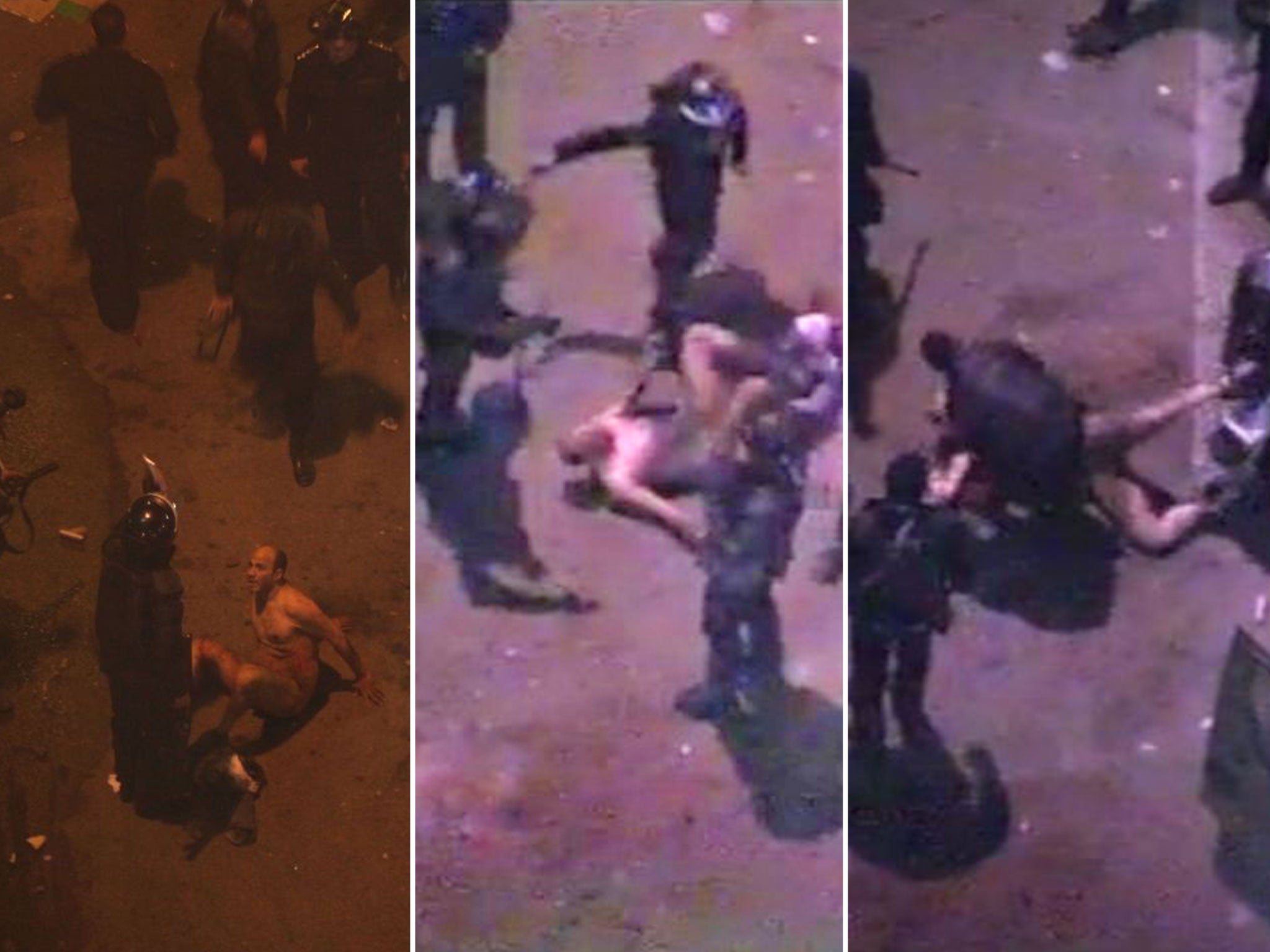Man beaten in Cairo now blames protesters – but campaigners smell a rat
Victim was coerced into giving statement, say activists and lawyers as Egyptian regime stands accused of ignoring revolution

Your support helps us to tell the story
From reproductive rights to climate change to Big Tech, The Independent is on the ground when the story is developing. Whether it's investigating the financials of Elon Musk's pro-Trump PAC or producing our latest documentary, 'The A Word', which shines a light on the American women fighting for reproductive rights, we know how important it is to parse out the facts from the messaging.
At such a critical moment in US history, we need reporters on the ground. Your donation allows us to keep sending journalists to speak to both sides of the story.
The Independent is trusted by Americans across the entire political spectrum. And unlike many other quality news outlets, we choose not to lock Americans out of our reporting and analysis with paywalls. We believe quality journalism should be available to everyone, paid for by those who can afford it.
Your support makes all the difference.When disturbing video footage emerged of a naked man being brutally beaten by riot police as he lay cowering on the roadside on Friday night, many Egyptians compared the scenes to the worst abuses of state power under former president Hosni Mubarak’s regime.
But as anti-government vitriol mounted – fuelled by the no-holds-barred TV clips showing baton-wielding officers hauling their victim across the asphalt – a strange thing happened.
The man at the centre of the storm, an impoverished 50-year-old painter called Hamada Saber, emerged on state television and blamed protesters for the violent attack.
Lying in his bed at the police hospital after the assault, he told an interviewer that he had been stripped of his clothes by anti-government demonstrators then robbed.
The startling volte-face appeared to take the heat off the Egyptian government, which had been facing a renewed excoriation over its failure to reform the reviled police service.
Yet tonight the spotlight again fell on President Mohamed Morsi and his cabinet after lawyers and activists voiced suspicion that Mr Saber had been forced to doctor his account of what really happened on Friday night.
According to Ragia Omran, a lawyer who worked to find Mr Saber after he was attacked, Mr Saber’s relatives soon became suspicious about the reasons behind his sudden U-turn.
Ms Omran, who was in contact with Mr Saber’s half-brother as they tried to locate him, said that in the wake of the beating and subsequent maelstrom of publicity, she believed the authorities had mounted an elaborate damage control exercise to cover up the incident.
“Why would they have taken him to a hospital only used by police officers?” she said, adding that another video was now circulating online in which Mr Saber purportedly admits the complicity of the security services.
The row over police brutality comes at a sensitive time for Mr Morsi, a long-time Muslim Brotherhood figure who has been accused by his opponents of betraying the 2011 uprising.
Over the past week, Egyptians have been marking the second anniversary of the insurrection by tallying up the latest death statistics in a nation wracked by political unrest.
Nearly 60 people have been killed so far following the clashes that erupted last week.
Most of the violence, which included gun battles on the streets of Port Said between protesters and the security services, has been directed at the police – an institution which has remained largely unreformed since Mubarak was toppled two years ago.
In a report released last week, Human Rights Watch lambasted Mr Morsi for the lacklustre progress he had made since being elected last summer.
“Six months after President Mohamed Morsi assumed power, criminal defamation and blasphemy prosecutions are increasing, police torture with impunity remains endemic, and civilians continue to face trials before military courts,” the report said.
Maha Maamoun, a human rights activist, accused President Morsi of continuing the abuses of his predecessor, adding that the case of Hamada Saber was evidence that the “revolution hadn’t happened”.
“The revolution was against police brutality,” she added. “People were marching against the police as a basic demand. But there has been no reform. Nothing. If anything it is getting worse.”
Join our commenting forum
Join thought-provoking conversations, follow other Independent readers and see their replies
Comments